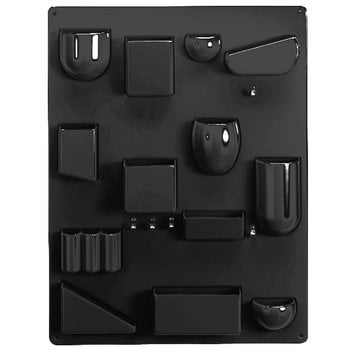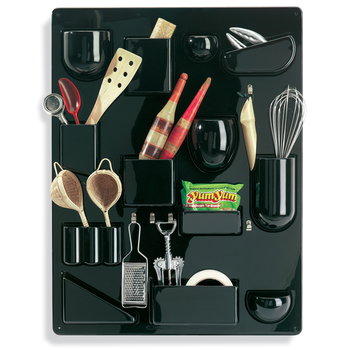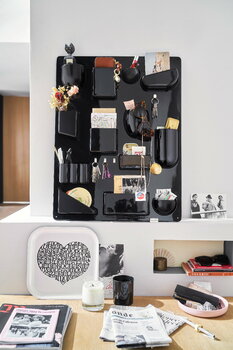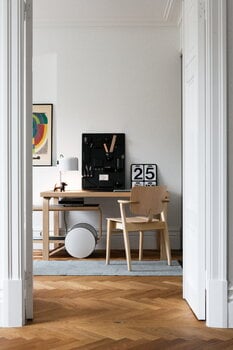Vitra’s Uten.Silo II, designed by Dorothee Becker in 1970, is a beautiful and practical storage unit for small items. Uten.Silo helps to bring order in the kitchen, bathroom, hall, office, children’s room – in fact, the characterful small lockers and hooks work perfectly in any room and interior! Uten.Silo is made of durable, easily cleanable ABS plastic.
Originally designed for Design M in 1960–1970 and currently produced by Vitra, the Uten.Silo has found its way to numerous homes in numerous counties. Uten.Silo is made of durable, easily cleanable ABS plastic.











